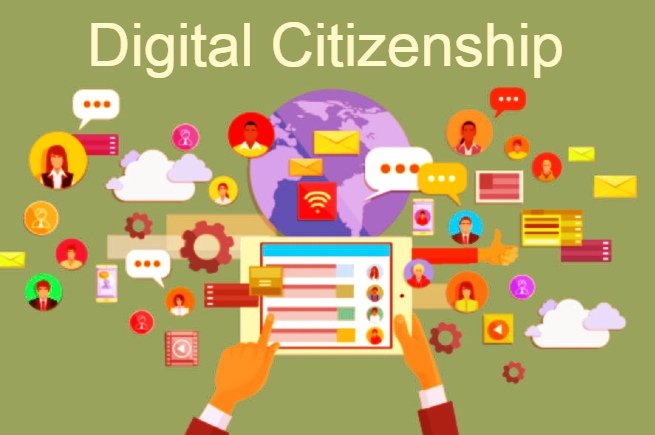Empowering the Next Generation: Teaching Digital Citizenship to Foster Safe and Responsible Online Behavior in Students
In today’s world, technology is everywhere, and it’s easy to get lost in the digital space. As educators, we have a responsibility to guide students on how to navigate the online world safely and responsibly. Digital citizenship is not just about knowing how to use technology, but also about being mindful of our actions and interactions online. It’s about being aware of the impact our online behavior has on ourselves, others, and society as a whole. As we teach our students about digital citizenship, we are helping them develop essential skills that will serve them well both now and in the future. By emphasizing responsible and ethical digital behavior, we can empower our students to be informed, engaged, and responsible members of the online community.

What is digital citizenship?
Digital citizenship is all about being a good citizen in the online world. It’s about understanding how to use technology in a way that’s safe, respectful, and ethical. As we navigate the digital landscape, it’s important to be aware of the risks and to take steps to protect ourselves and our personal information. Digital citizenship also involves being mindful of how we interact with others online, including our tone, language, and behavior. By being responsible and respectful digital citizens, we can help create a positive and inclusive online community where everyone feels safe and valued. As educators, we have a critical role to play in teaching digital citizenship to our students, equipping them with the skills and knowledge they need to be responsible, ethical, and engaged members of the digital world.
Why is digital citizenship important?
The internet has become an integral part of our daily lives, and our students are no exception. They use it for communication, entertainment, and education. However, as educators, we are aware that the online world can also pose serious risks to our students’ safety and well-being. Cyberbullying, online harassment, and identity theft are just a few of the potential dangers they may encounter. That’s why teaching digital citizenship has become more important than ever. By educating our students on responsible online behavior, we can empower them to use the internet safely and responsibly. We can equip them with the skills and knowledge they need to recognize online threats, protect their personal information, and interact with others in a respectful and ethical way. By emphasizing digital citizenship in our classrooms, we are preparing our students for success in the digital age while also promoting a safe and inclusive online community.
How can we teach digital citizenship?
Start early: It’s never too early to start teaching digital citizenship. Begin by introducing basic concepts such as online safety and responsible behavior to younger students, and gradually build on these concepts as they get older.
Use real-life examples: Incorporate real-life examples of online behavior into your lessons, such as cyberbullying or privacy violations. Encourage students to think critically about the consequences of their actions online.
Emphasize respect and empathy: Teach students the importance of treating others with respect and empathy online, just as they would in person. Discuss topics such as online etiquette, cyberbullying, and the impact of hurtful comments.
Discuss privacy and security: Teach students how to protect their personal information online and how to identify and avoid online scams and phishing attacks.
Model responsible behavior: As educators, we must model responsible digital citizenship behavior. Use appropriate language and tone in online communications and demonstrate safe and responsible behavior online.
In today’s digital world, teaching digital citizenship is not just an important task, but it’s also our responsibility as educators. With the increasing reliance on technology and the internet, it’s essential that our students are equipped with the skills and knowledge they need to navigate the online world safely and responsibly. By promoting digital citizenship, we can help students develop critical thinking skills, learn how to protect their personal information, and interact with others in a positive and respectful way. This not only prepares them for success in the digital age but also helps them become responsible and ethical members of society. Ultimately, teaching digital citizenship is about creating a safer and more inclusive online community where everyone feels empowered to use technology for good.
Image Source : The Scientific World






